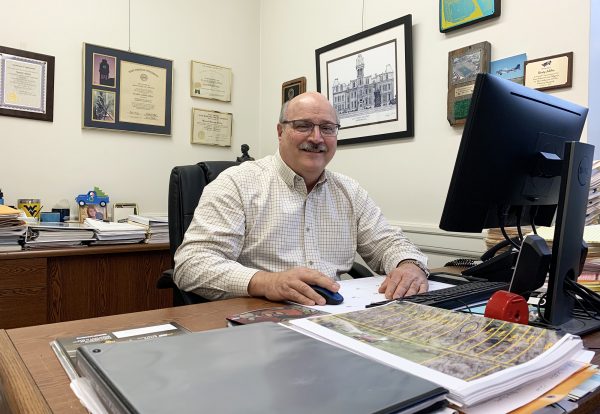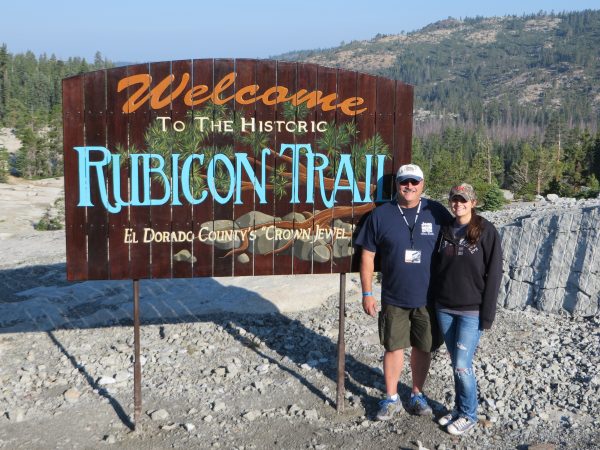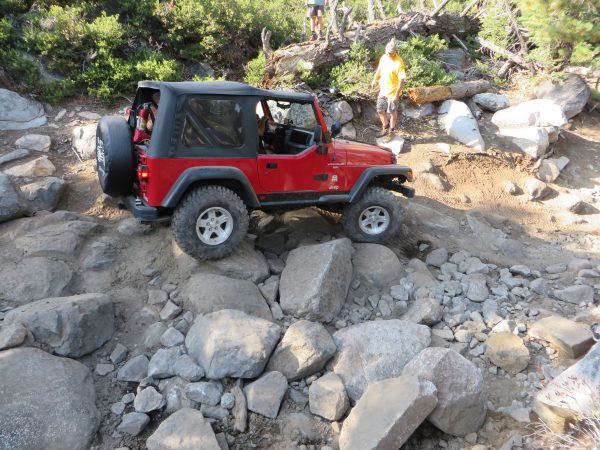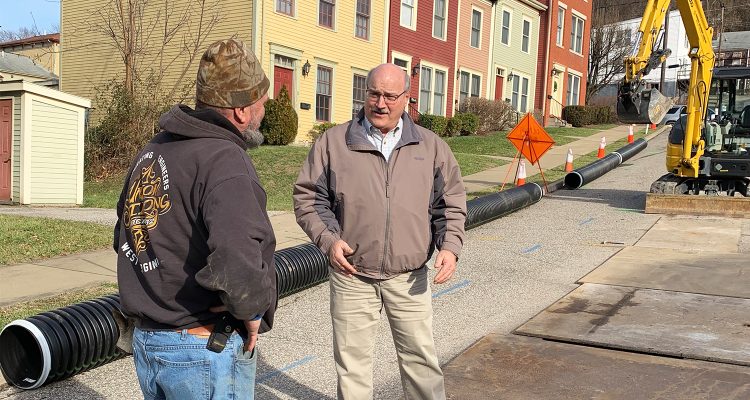Editor’s note: Our series, “Wheeling@Work,” is an effort to provide readers with insight and information into our city government, highlighting the personalities, programs and processes at work within the City of Wheeling. Today’s story features Rusty Jebbia, the city’s director of Public Works.
You know that feeling you get when you’re on your couch and you’re trying to relax but you know there are dishes in the sink waiting to be done and a pile of laundry nearby that needs to be folded? You can’t quite get into watching your show because being at home also means taking care of your home and the people who live there with you.That’s the feeling Director of Public Works Rusty Jebbia gets driving around the city of Wheeling.
He has spent the past 41 years of his career making sure the place so many of us call home — Wheeling, West Virginia — is safe, sanitary and well-maintained.
THE WORKING MODE
“As I drive around, whether I’m working or not working, I’m always looking at things, seeing a meter lid missing or a bent sign,” Jebbia said. “When I’m not working, I’m still in that mode. I was just walking our dog last night, and I saw a couple big piles of leaves, and I called in about them. It’s just part of the job, and it doesn’t go away.”
The city has seen a lot of life since Jebbia began his job in 1978 after leaving West Virginia University with a degree in landscape architecture. But after 41 years in a number of different roles, Jebbia said he’s still not sure what will be waiting for him when he comes to work in the mornings.

“On any given day, nothing ever seems to run real smooth. There’s always these little problems we have to deal with, and we find a way around them,” he said.
Six separate divisions make up Public Works at the City of Wheeling: operations, water, water pollution control, sanitation, vehicle maintenance and engineering.
“There are 181 people in those various divisions, and any day it just depends on who calls first,” Jebbia explained. “If there’s a problem with sanitation, we’ve got to scramble and make sure we get the system covered. We have valves within the water system we know need to be repaired, but if we have a break, we have to delay that work to fix the break. When things break down, it throws a wrench into the process, but we can typically get around it because we’ve been at it long enough.”
Like Jebbia himself, those combined years of experience have taught the department what to watch for and how to respond. Public Works takes care of everything from making sure the city sidewalks are repaired to trash removal to responding quickly to keep the roadways safe during a storm or flood. Jebbia said watching city employees at work is something that might go unnoticed by the general public, but making sure they can do their job efficiently gives him a sense of pride.
“Sanitation is the hardest working group of people we have physically,” he said, as an example. “Every day their jobs are laying out there in the streets. It’s pouring down rain, and they’re out there picking up trash. It’s a very strenuous job for those guys. We try to keep them on the road by keeping their equipment running and keeping them in gloves and safety gear.”
FRUITS OF HIS LABOR
Hard work isn’t a foreign concept for someone with the Jebbia name. As you may have guessed, Rusty is one of those Jebbias. The family’s fruit and vegetable market has been a long-standing institution in Wheeling.
“Our family originally had the Centre Market house back in the 1950s and early ’60s. That was my dad and his brothers. We had a pretty large family business. Jebbia’s Market on 26th is owned by my cousins,” he said. “When I was home for the summers from college, I would work down at the market.”
A graduate of Linsly School, Jebbia makes a life in Elm Grove — where he grew up — with his wife Kathleen, a retired Marshall County Schools teacher. Along with his daughter Alex, Jebbia enjoys serving as a trail guide for Jeep Jamboree USA.

“There are 36 events held throughout the country at different times of the year. Jeep owners bring their Jeeps and drive on trails rated at different skill levels with guides spotting them on the proper driving lines of the trails,” Jebbia said. “A few years ago we had the opportunity to ship our Jeep, along with eight other guides’ Jeeps, to California to do the Rubicon Trail Jamboree. It was a bucket list thing that we couldn’t pass up. It is the only trail in the country to be rated as a 10 in difficulty. It was a great three days.”
Other Jeep Jamboree adventures have taken the family to Moab, Utah, and points closer to home like Penn Wood’s trail and the Greenbriar Valley trail.
“We have completed over 30 Jamborees so far. We have been doing this since my daughter was 10 years old,” Jebbia said.

ONE STEP AT A TIME
Just like overcoming a physical obstacle on the trail, when Jebbia is back at work, challenges are tackled one step — or mile — at a time.
“Forty-one years is a long time. A lot has changed in that time period. When I first came to the city, we had 90-some people, and it was called the Street Department,” he recalled. “Now we’re down to 52 people in operations. What people may not understand is that we might not have the same population we once did, but we have the same number of streets and sewer lines and water lines. Technology has changed, equipment has changed, but you still need the people there to make things happen. I think we’ve done a great job to keep the city running as efficiently as we can, but, with those projects, sometimes it’s just a challenge to move people around to get the jobs done.”
That is why — just as it would be the case with anyone else you might live with — communication is so important. Jebbia said he would love to see more citizens come to his office with concerns as soon as they occur.
“With social media, it gets frustrating because people post on Facebook about a water break or another issue and instead of calling us, they’ll post about it, and we could have saved time by knowing about it,” Jebbia said.
“Sometimes we don’t know unless people let us know. We have a website and a 311 system now. We try to respond to that as quickly as possible. We always have someone available at the water or sewer plant, and they can always call and get someone. They can also call our dispatch, and they’ll get to the right person.”


